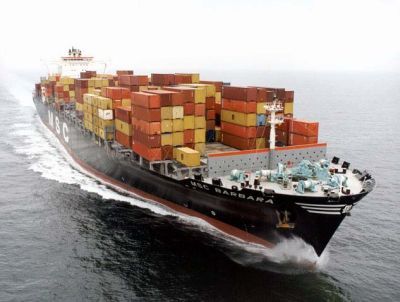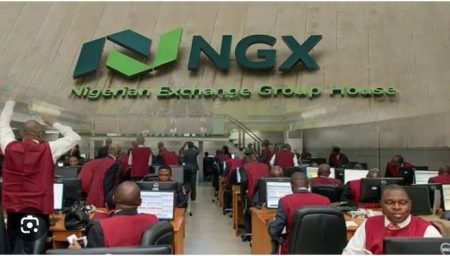The Nigerian maritime sector faces a significant challenge due to the accumulation of empty shipping containers at its ports. The Sea Empowerment and Research Centre (SEREC) estimates that over 100,000 empty containers are currently cluttering Nigerian ports, posing environmental, logistical, and financial burdens. These containers, often left abandoned by shipping lines due to the high cost of repatriation, occupy valuable port space, contribute to congestion, and pose potential health hazards, especially when they fall into disrepair. The financial implications are substantial, with Nigerian importers estimated to be losing over $500 million annually due to inefficiencies related to this container surplus, including fluctuating exchange rates and increased importation costs. The cost of shipping a single empty container back to its port of origin ranges from $2,000 to $6,000, depending on the size and destination, creating a disincentive for shipping companies to retrieve them.
The congestion caused by these abandoned containers leads to significant storage costs and demurrage fees for importers. Demurrage, a penalty charged by shipping lines for exceeding the allowed free time for container usage, can reach as high as N60,000 per container per month. This adds further financial strain on importers and contributes to the overall cost of goods in the country. Moreover, a significant portion of these containers, estimated at around 45%, are rickety or unseaworthy, exacerbating the environmental and health risks. These decaying containers can leach harmful substances into the surrounding environment, posing a threat to both human health and the delicate ecosystem of the port areas. The visual blight they create also detracts from the overall aesthetic and operational efficiency of the ports.
SEREC, a maritime research group, has been actively researching this issue and advocating for solutions. Their research highlights the urgent need for a comprehensive strategy to address this growing problem. They propose a multi-pronged approach focusing on boosting Nigerian exports, improving port infrastructure, and implementing a robust container return system. Encouraging exports would help balance the inflow and outflow of containers, reducing the surplus of empty containers left in Nigerian ports. Investing in modern port infrastructure and management systems would streamline container handling, minimize congestion, and improve the tracking and logistics of container returns.
Furthermore, SEREC strongly recommends the establishment of a dedicated container return system. Such a system would involve collaboration between key stakeholders in the maritime sector, including the Nigerian Shippers Council, the Nigerian Ports Authority, and the Council for the Regulation of Freight Forwarding in Nigeria. This collaborative effort would ensure a coordinated approach to managing the flow of containers and incentivizing their timely return. SEREC has already formally communicated their proposal to the Minister of Marine and Blue Economy, urging the government to take decisive action.
One of the key recommendations put forth by SEREC is the implementation of a demurrage tax on unreturned empty containers. This tax, levied on a percentage basis after a grace period of approximately three months, would create a financial incentive for shipping lines to retrieve their containers promptly. The revenue generated from this tax could then be allocated towards road maintenance and environmental remediation, addressing some of the negative externalities associated with the abandoned containers. SEREC cites international best practices where similar systems have proven effective in encouraging container repatriation and generating revenue for port-related infrastructure improvements.
SEREC has also advised on promoting and implementing a balanced trade system to address the container imbalance. Boosting Nigerian exports can help offset the influx of imported goods and reduce the number of empty containers accumulating at the ports. This approach requires a concerted effort to develop and support local industries, improve product quality, and access international markets. In addition to balancing trade, investing in better port infrastructure and management systems is crucial. Modernized ports with efficient handling equipment and digital tracking systems can streamline container operations, reduce congestion, and facilitate the timely return of empty containers. This investment would require significant capital but would yield long-term benefits by improving the efficiency and competitiveness of Nigerian ports. By implementing these recommendations, Nigeria can effectively address the challenge of empty container congestion, improve its maritime sector efficiency, and mitigate the associated economic and environmental costs. This strategic approach would not only reduce the financial burden on importers but also contribute to a cleaner, more efficient, and economically vibrant port system.














